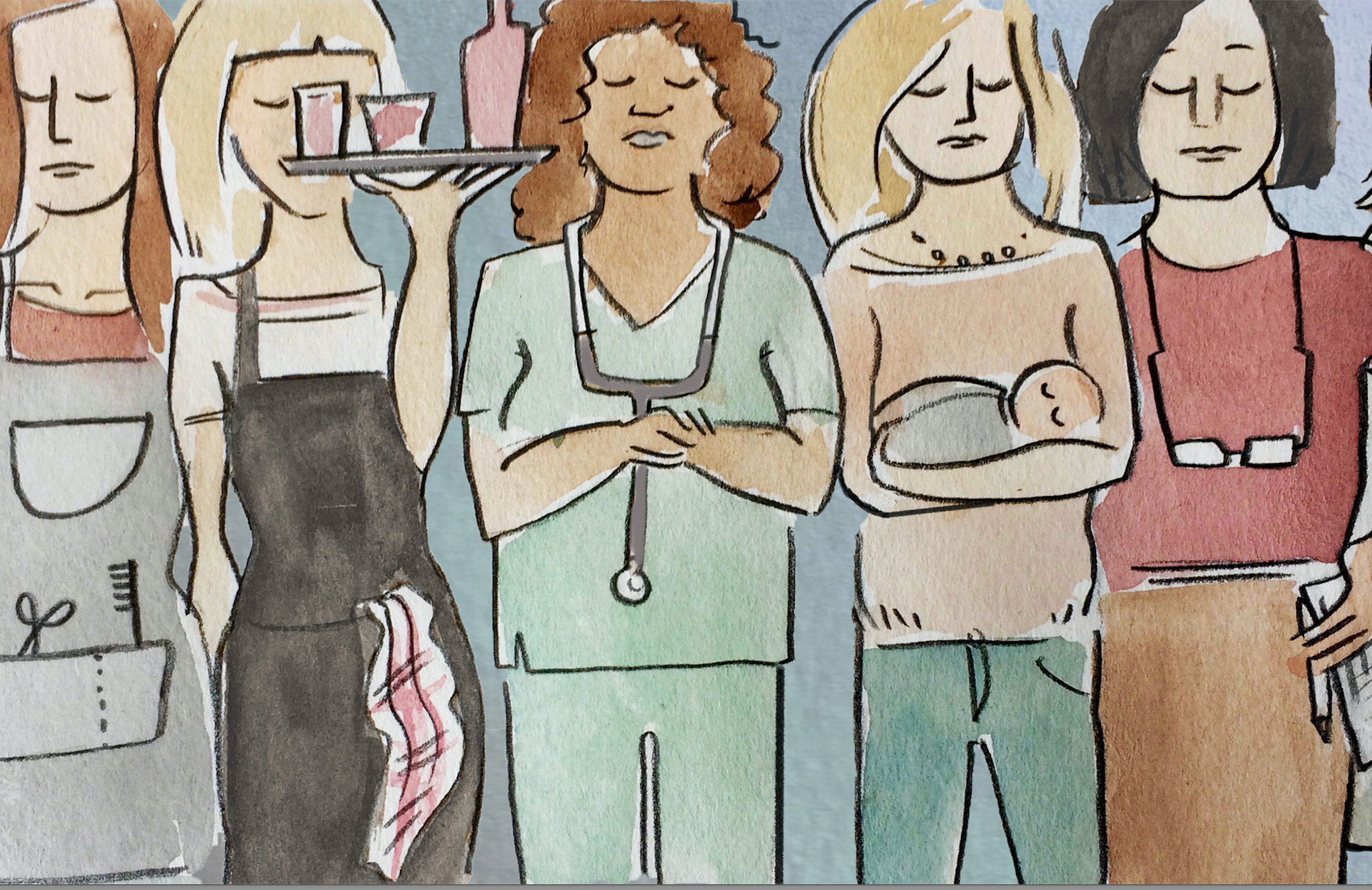The jobs in our society that focus on caring for others are often held by women. Women hold 70% of teaching jobs, 90% of nurses are female, social workers, childcare, customer service, you name it. If the duties performed in a particular industry involve caring for another person, most of the workers employed in that industry will be female. Yet within these industries men who do the same jobs are still paid more. Overall, women earn 80 cents for every dollar earned by men who perform the same job. This gender pay gap exists even in these jobs dominated by women. A male elementary school teacher earns 9% more than a female teacher. A male nurse’s median weekly income is $556 versus a female’s $446. When we cut budgets for our schools and our hospitals, we’re doing more than hurting the women typically in these jobs. We’re hurting everyone. If we want to better care about our citizens and reverse these trends, women would know how to do it best.

Yet women only hold 24% of C suite positions in the United States. Only 19% of our “representatives” in Congress are female. How does that stack up with the fact that half (that’s 50%, y’all) of our nation has the power to birth a human being? Rachel Croson and Uri Gneezy performed a comprehensive review of literature with regards to preferences and gender. They find that women are more risk averse than men, are more sensitive to social cues, and are more cooperative. If women were in charge, would the bets placed on the housing industry that helped cause the last financial meltdown have happened? Would we be cutting funding for educating our children, profiting off our students in colleges, or letting 48 million Americans live in poverty? Given the findings, it seems unlikely. Women just seem to care more about these things.
Take a look at Hillary Clinton’s choice for chief economist for her transition team, Heather Boushey. Her book, Finding Time, highlights how care for our health, our children, and the elderly, have all been subsidized by “the American Wife.” As women have entered the official workforce, “the market” needs to recognize these valuable contributions with equitable pay. Or look at our recently spotlighted economist Pavlina Tcherneva. She advocates for feminist fiscal policy, claiming our current gender and race blind policy approach is anything but. Policy that is race and gender blind really just means favorable for white males. These problems are intersectional, income disparities get even worse if you’re female and a person of color. If we want to reverse these trends, we need to target policy towards helping these communities who have been harshly marginalized. Sadly, I doubt it’s going to be males who get it done. Males are the more competitive gender, and real competition drives capitalism. If society was driven by the cooperative gender, and we had real cooperation and caring instead, where would we be?
